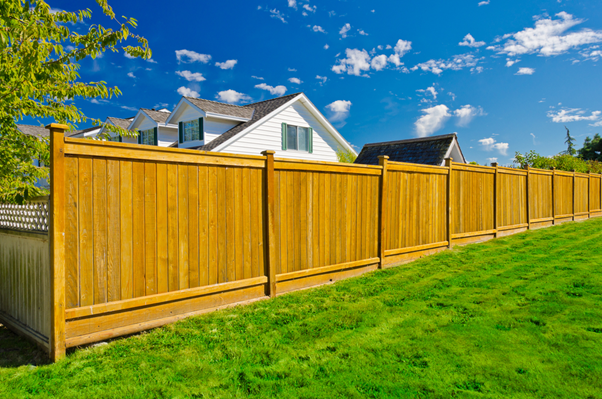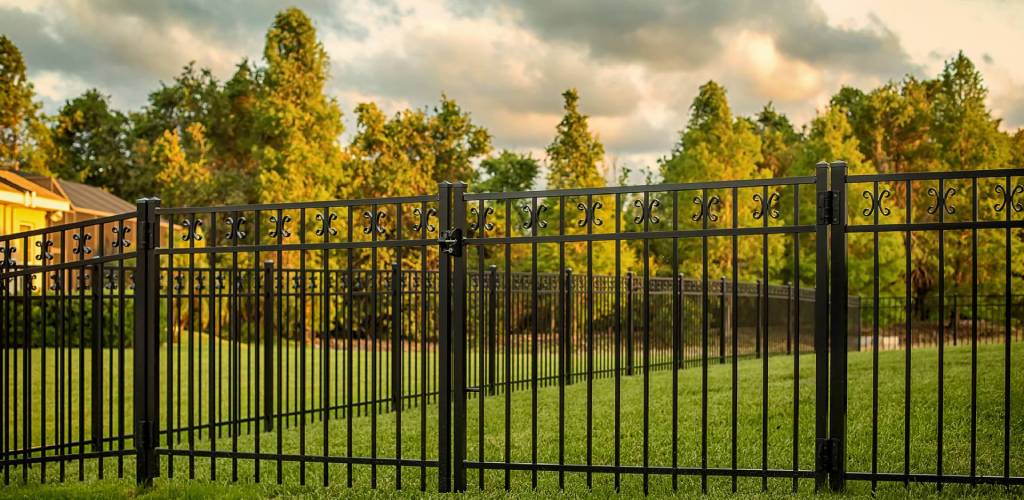All Categories
Featured

Selecting the best secure fencing product is vital for accomplishing the equilibrium of sturdiness, visual appeals, and performance that suits your building. Wood, vinyl, and light weight aluminum are popular selections, each with unique functions that satisfy details demands. Here's an in-depth consider the advantages and disadvantages of these three materials.
Wood Secure Fencing. Pros:. Timeless Charm: Wood uses a natural, timeless appearance that matches numerous architectural designs. Adjustable: It can be repainted or discolored in a variety of layouts and colors. Economical: Timber fencings are often less costly upfront than plastic or light weight aluminum. Eco-Friendly: As a sustainable source, wood is lasting and naturally degradable when sourced sensibly. Disadvantages:. Maintenance-Intensive: Requires routine staining, painting, or sealing to secure against weather and bugs. Much Shorter Lifespan: Depending upon the sort of wood and climate, it normally lasts 10-15 years. Susceptability to Damages: Prone to deteriorating, warping, and termite damage without appropriate care. Wood is optimal for homeowners that value aesthetic appeals and want to spend effort and time in maintenance to prolong its life.
Vinyl Secure Fencing. Pros:. Sturdy: Resistant to bugs, rot, and climate, plastic preserves its framework in rough problems. Low Maintenance: Needs little upkeep beyond periodic cleaning. Long Life-span: Vinyl can last 20-30 years without considerable wear or damage. Versatile Styles: Available in numerous colors, textures, and designs, consisting of alternatives that mimic wood. Disadvantages:. Expensive Setup: Vinyl fences are a lot more expensive to mount compared to timber. Weak in Winter: Plastic can fracture in severe cool climates. Hard to Repair work: If harmed, whole sections might require substitute, which can be testing to match. Plastic secure fencing is a fantastic option for those focusing on longevity and marginal upkeep, even if it features a greater in advance price.

Aluminum Fencing. Pros:. Rust-Resistant: Light weight aluminum does not corrosion, making it suitable for damp or wet locations. Strong but light-weight: Offers strength without being excessively hefty, which streamlines installation. Reduced Upkeep: Calls for little bit greater than cleaning and occasional repainting. Longevity: Aluminum fences can last for years without significant deterioration. Elegant Styles: Usually utilized for attractive objectives, light weight aluminum adds sophistication to any residential or commercial property. Disadvantages:. High First Cost: Light weight aluminum fences are among the much more costly alternatives. Restricted Privacy: Frequently created with open spaces, they don't block views or noise. At risk to Dents: While sturdy, aluminum can be nicked or curved with hefty impact. Aluminum is best fit for those who want a durable, elegant fence and do not call for complete personal privacy.
Making the Right Selection. Each material has its weak points and strengths:

Timber is best for eco-conscious buyers and standard aesthetic appeals that do not mind upkeep. Plastic works for property owners seeking a weather-resistant, low-maintenance solution. Aluminum is a resilient, decorative option for those that want elegance and long life. Consider your priorities-- whether it's price, appearance, maintenance, or privacy-- and get in touch with a secure fencing expert to choose the material that best satisfies your demands. A well-selected fencing will enhance your building for several years to come.
Latest Posts
Explore Exclusive Auto Repair Deals in Chicago at Montclare Auto Repair
Published en
1 min read
The Benefits of Consistent Vehicle Maintenance at Montclare Auto Repair Keeps Your Wallet Happy
Published en
1 min read
Boost Your Residential Or Commercial Property with Overhead Door Systems
Published en
1 min read
More
Latest Posts
Explore Exclusive Auto Repair Deals in Chicago at Montclare Auto Repair
Published May 29, 25
1 min read
The Benefits of Consistent Vehicle Maintenance at Montclare Auto Repair Keeps Your Wallet Happy
Published May 28, 25
1 min read
Boost Your Residential Or Commercial Property with Overhead Door Systems
Published May 25, 25
1 min read